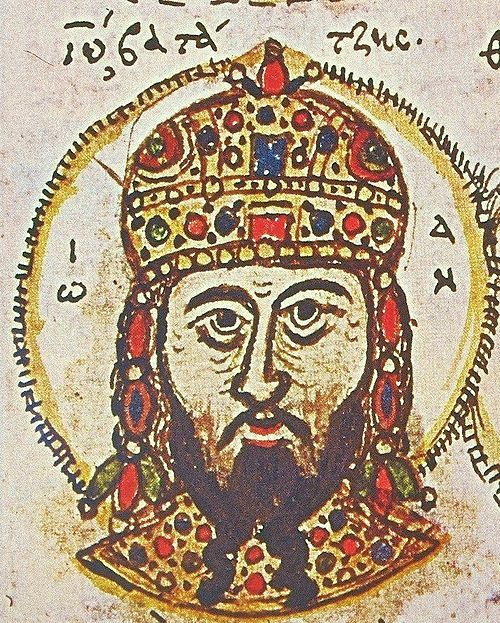Year 1224: A Year of Notable Events
The year 1224 (MCCXXIV) was a leap year, commencing on Monday in the Julian calendar. This year bore witness to significant political, cultural, and military developments across various regions.
January – March
January 14 – The reign of Emperor Xuan Zong of the Jurchen-led Jin dynasty in China concludes after ten years, paving the way for his son, Ai Zong, aged 25, who continues to expand Jin territories during the Jin–Song Wars.
February 20 – Jacopo Tiepolo, future Doge of the Republic of Venice (1229–1249), finalizes an agreement as Podestà with Robert I, Latin Emperor of Constantinople, ensuring favorable treatment for Venice within the Empire.
February – King Ferdinand III announces his intention to rejuvenate the Reconquista against the Almohad Caliphate. Following the death of Caliph Yusuf II al-Mustansir, political turmoil fosters an opportunity for Ferdinand’s victorious campaign, culminating in the capture of Quesada in October.
March 1 – Pope Honorius III dispatches a letter to the Roman Catholic Patriarch of Jerusalem, Francisco Clemente Pérez Capera, informing him of the impending departure of forces from the Holy Roman Empire, Teutonic Knights, and the Kingdom of Sicily for the Sixth Crusade aimed at reclaiming Jerusalem.
April – June
April 23 – William Marshal, 2nd Earl of Pembroke and enforcer of the Magna Carta, marries Eleanor of England, Countess of Leicester, strengthening ties with the House of Plantagenet.
May 5 – King Louis VIII of France declares war on King Henry III of England, launching invasions that see Poitou swiftly fall into French hands by the end of June.
June 5 – The University of Naples is founded by Emperor Frederick II, with the aim of establishing a premier institution of learning to rival the dominant universities of northern Italy.
June 20 – The siege of Bedford Castle by King Henry III of England commences.
July – September
July 16 – Hōjō Yoshitoki becomes the regent (shikken) for the Kamakura shogunate in Japan following his father’s death.
August 15 – After a two-month siege, the garrison at Bedford Castle surrenders to Henry III. Following their surrender, the defenders are executed, while Falkes de Bréauté is exiled and stripped of his possessions.
September 14 – Francis of Assisi, during a 40-day fast at La Verna, has a vision and receives the stigmata, as recorded by Brother Leo.
September 17 – Emperors Ning Zong of the Song dynasty dies, succeeded by relative Li Zong, following all of Ning Zong’s children having previously died.
September – Abdallah al-Adil of Al-Andalus captures Seville, toppling the Almohad ruler Abu Muhammad al-Wahid.
October – December
October – Lý Huệ Tông, the Emperor of Vietnam, abdicates in favor of his daughter, Princess Chiêu Thánh, who becomes Empress Regnant. Plans for her marriage to the young Trần Cảnh are initiated.
November 24 – Representatives of Louis VIII and Frederick II sign a treaty in Catania, agreeing to not harbor each other’s rebels.
December – Theodore Komnenos captures Thessaloniki, marking the rise of a de facto Byzantine Empire in Thessalonica.
By Region
Byzantine Empire
Spring – In the Battle of Poimanenon, Byzantine forces under Emperor John III achieve a decisive victory over the Latin army, capturing key leaders including the Laskaris brothers.
Europe
Livonian Crusade: The Brothers of the Sword successfully engage the Estonians, recapturing strongholds and reducing Estonian control to just a few islands.
Spring – Falkes de Bréauté begins a rebellion against Henry III, leading to his eventual excommunication.
Asia
Spring – The Mongol army led by Subutai and Jochi returns from a campaign in the west, re-integrating Kazakhstan into the Mongol Empire following their victory.
Births
- March 5 – Kinga of Poland, high duchess of Poland (d. 1292)
- March 20 – Sophie of Thuringia, duchess of Brabant (d. 1275)
- June 14 – Matilda of Brabant, countess of Artois (d. 1288)
- July 1 – Hōjō Tsunetoki, Japanese regent (shikken; d. 1246)
- Various – Notable births include figures such as Jean de Joinville (d. 1317) and Isabelle of France (d. 1270).
Deaths
- January 14 – Emperor Xuan Zong of China (b. 1163)
- March 24 – Bishop Conrad III (b. 1165)
- July 1 – Shikken Hōjō Yoshitoki (b. 1163)
- September 17 – Emperor Ning Zong of China (b. 1168)
- Various – Numerous prominent figures including rulers and bishops across Europe and Asia.
This year was marked by pivotal changes across the globe, significantly shaping the political landscapes that would influence future generations.

